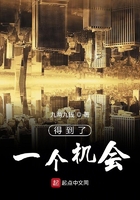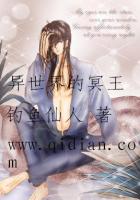I confess that when it was first proposed to me I had a terror of writing this book。 Not that my life has not been more interesting than any novel and more adventurous than any cinema and, if really well written, would not be an epoch?making recital, but there’s the rub—the writing of it!
It has taken me years of struggle, hard work, and research to learn to make one simple gesture, and I know enough about the Art of writing to realise that it would take me again just so many years of concentrated effort to write one simple, beautiful sentence。 How often have I contended that although one man might toil to the Equator and have tremendous exploits with lions and tigers, and try to write about it, yet fail, whereas another who never left his verandah, might write of the killing of tigers in their jungles in a way to make his readers feel that he was actually there, until they can suffer his agony and apprehension, smell lions and hear the fearful approach of the rattlesnake。Nothing seems to exist save in the imagination, and all the marvellous things that have happened to me may lose their savour because I do not possess the pen of a Cervantes or even of a Casanova。
Then another thing。 How can we write the truth about ourselves?Do we even know it?There is the vision ourfriends have of us;the vision we have of ourselves;and the vision our lover has of us。Also the vision our enemies have of us。And all these visions are diferent。I have good reason to know this, because I have had served to me with my morning coffee, newspaper criticisms that declared I was beautiful as a goddess, and that I was a genius, and hardly had I finished smiling contentedly over this, than I picked up the next paper and read that I was without any talent, badly shaped, and a perfect harpy。
I soon gave up reading criticisms of my work。 I could not stipulate that I should only be given the good ones, and the bad were too depressing and provocatively homicidal。There was a critic in Berlin who pursued me with insults。Among other things he said that I was profoundly unmusical。One day I wrote imploring him to come and see me and I would convince him of his errors。He came and as he sat there, across the teatable, I harangued him for an hour and a half about my theories of visional movement created from music。I noticed that he seemed most prosaic and stolid, but what was my uproarious dismay when he produced from his pocket a deafa?phone and informed me he was quite deaf and even with his instrument could hardly hear the orchestra, although he sat in the first row of the stalls!This was the man whose views on myself had kept me awake at night!
So if at each point of view others see in us a different person, how are we to find in ourselves yet another personality of whom to write in this book?Is it to be theChaste Madonna, or the Messalina, or the Magdalen, or the Blue Stocking?Where can I find the woman of all these adventures?It seems to me there was not one, but hundreds—and my soul soaring aloft, not really afected by any of them。
It has been well said that the first essential in writing about anything is that the writer should have no experience of the matter。 To write of what one has actually experienced in words, is to find that they become most evasive。Memories are less tangible than dreams。Indeed, many dreams I have had seem more vivid than my actual memories。Life is a dream, and it is well that it is so, or who could survive some of its experiences?Such, for instance, as the sinking of the Lusitania。An experience like that should leave for ever an expression of horror upon the faces of the men and women who went through it, whereas we meet them everywhere smiling and happy。It is only in romances that people undergo a sudden metamorphosis。In real life, even after the most terrible experiences, the main character remains exactly the same。Witness the number of Russian princes who, after losing everything they possessed, can be seen any evening at Montmartre supping as gaily as ever with chorus girls, just as they did before the war。
Any woman or man who would write the truth of their lives would write a great work。 But no one has dared to write the truth of their lives。Jean?Jacques Rousseau made this supreme sacrifice for Humanity—to unveil the truth of his soul, his most intimate actions and thoughts。Theresult is a great book。Walt Whitman gave his truth to America。At one time his book was forbidden to the mails as an“immoral book。”This term seems absurd to us now。No woman has ever told the whole truth of her life。The autobiographies of the most famous women are a series of accounts of the outward existence, of petty details and anecdotes which give no realisation of their real life。For the great moments of joy or agony they remain strangely silent。
My Art is just an efort to express the truth of my Being in gesture and movement。 It has taken me long years to fnd even one absolutely true movement。Words have a diferent meaning。Before the public which has thronged my representations I have had no hesitation。I have given them the most secret impulses of my soul。From the frst I have only danced my life。As a child I danced the spontaneous joy of growing things。As an adolescent I danced with joy turning to apprehension of the first realisation of tragic undercurrents;apprehension of the pitiless brutality and crushing progress of life。
When I was sixteen I danced before an audience without music。 At the end someone suddenly cried from the audience,“It is Death and the Maiden,”and the dance was always afterwards called“Death and the Maiden。”But that was not my intention;I was only endeavouring to express my first knowledge of the underlying tragedy in all seemingly joyous manifestation。The dance, according to my comprehension, should have been called“Life and the Maiden。”
Later on I danced my struggle with the same life, which the audience had called death, and my wresting from it its ephemeral joys。
Nothing is further from the actual truth of a personality than the hero or heroine of the average cinema play or novel。 Endowed generally with all the virtues, it would be impossible for them to commit a wrong action。Nobility, courage, fortitude, etc……etc……;for him。Purity, sweet temper, etc……for her。All the meaner qualities and sins for the villain of the plot and for the“Bad Woman,”whereas in reality we know that no one is either good or bad。We may not all break the Ten Commandments, but we are certainly all capable of it。Within us lurks the breaker of all laws, ready to spring out at the first real opportunity。Virtuous people are simply those who have either not been tempted sufficiently, because they live in a vegetative state, or because their purposes are so concentrated in one direction that they have not had the leisure to glance around them。
I once saw a wonderful film called The Rail。 The theme was that the lives of human beings are all as the engine running on a set track。And if the engine jumps the track or finds an insurmountable object in its way, there comes disaster。Happy those drivers who, seeing a steep descent before them, are not inspired with a diabolical impulse to take of all brakes and dash to destruction。
I have sometimes been asked whether I consider love higher than art, and I have replied that I cannot separate them, for the artist is the only lover, he alone has the purevision of beauty, and love is the vision of the soul when it is permitted to gaze upon immortal beauty。
Perhaps one of the most wonderful personalities of our times is Gabriel d'Annunzio, and yet he is small and, except when his face lights up, can hardly be called beautiful。 But when he talks to one he loves he is transformed to the likeness of Phoebus Apollo himself, and he has won the love of some of the greatest and most beautiful women of the day。When D'Annunzio loves a woman, he lifts her spirit from this earth to the divine regions where Beatrice moves and shines。In turn he transforms each woman to a part of the divine essence, he carries her aloft until she believes herself really with Beatrice, of whom Dante has sung
in immortal strophes。There was an epoch in Paris when the cult of D'Annunzio rose to such a height that he was loved by all the most famous beauties。At that time he flung over each favourite in turn a shining veil。She rose above the heads of ordinary mortals and walked surrounded by a strange radiance。But when the caprice of the poet ended, this veil vanished, the radiance was eclipsed, and the woman turned again to common clay。She herself did not know what had happened to her, but she was conscious of a sudden descent to earth, and, looking back to the transformation of herself when adored by D'Annunzio, she realised that in all her life she would never again find this genius of love。Lamenting her fate, she became more and more desolate, until people, looking at her, said,“How could D'Annunzio love this commonplace and red?eyed woman?”Sogreat a lover was Gabriel D’Annunzio that he could transform the most commonplace mortal to the momentary appearance of a celestial being。
Only one woman in the life of the poet withstood this test。 She was the reincarnation of the divine Beatrice herself, and over her D'Annunzio needed to throw no veil。For I have always believed that Eleanore Duse was the actual Beatrice of Dante reincarnated in our days, and so before her D'Annunzio could only fall upon his knees in adoration, which was the unique and beatific experience of his life。In all other women he found the material which he himself transmitted;only Eleanore soared above him, revealing to him the divine inspiration。
How little do people know of the power of subtle fattery!To hear oneself praised with that magic peculiar to D'An?nunzio is, I imagine, something like the experience of Eve when she heard the voice of the serpent in Paradise。 D'Annunzio can make any woman feel that she is the centre of the universe。
I remember a wonderful walk I had with him in the Forêt。We stopped in our walk and there was silence。Then D’Annunzio exclaimed,“Oh, Isadora, it is only possible to be alone with you in Nature。All other women destroy the landscape;you alone become part of it。”(Could any woman resist such homage?)“You are part of the trees, the sky;you are the dominating goddess of Nature。”
That was the genius of D'Annunzio。 He made each woman feel she was a goddess in a diferent domain。
Lying here on my bed at the Negresco, I try to analyse this tiling that they call memory。 I feel the heat of the sun of the Midi。I hear the voices of children playing in a neighbouring park。I feel the warmth of my own body。I look down on my bare legs—stretching them out。The softness of my breasts, my arms that are never still, but continually waving about in soft undulations, and I realise that for twelve years I have been weary, this breast has harboured a never?ending ache, these hands before me have been marked with sorrow, and when I am alone these eyes are seldom dry。The tears have fowed for twelve years, since that day, twelve years ago, when, lying on another couch, I was suddenly awakened by a great cry and, turning, saw L。like a man wounded:“The children have been killed。”
I remember a strange illness came upon me, only in my throat I felt a burning as if I had swallowed some live coals。 But I could not understand。I spoke to him very softly;I tried to calm him;I told him it could not be true。Then other people came, but I could not conceive what had happened。Then entered a man with a dark beard。I was told he was a doctor。“It is not true,”he said;“I will save them。”
I believed him。 I wanted to go with him, but people held me back。I know since that this was because they did not wish me to know that there was indeed no hope。They feared the shock would make me insane, but I was, at that time, lifted to a state of exaltation。I saw everyone about me weeping, but I did not weep。On the contrary, I feltan immense desire to console everyone。Looking back, it is difcult for me to understand my strange state of mind。Was it that I was really in a state of clairvoyance, and that I knew that death does not exist—that those two little cold images of wax were not my children, but merely their cast?off garments?That the souls of my children lived on in radiance, but always lived?Only twice comes that cry of the mother which one hears as without one’s self—at Birth and at Death—for when I felt in mine those little cold hands that would never again press mine in return I heard my cries—the same cries as I had heard at their births。Why the same—since one is the cry of supreme joy and the other of sorrow?I do not know why, but I know they are the same。Is it that in all the Universe there is but one Great Cry containing Sorrow, Joy, Ecstasy, Agony, the Mother Cry of Creation?













